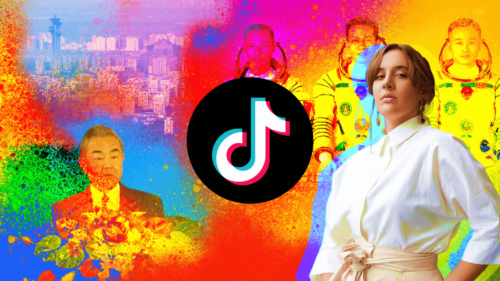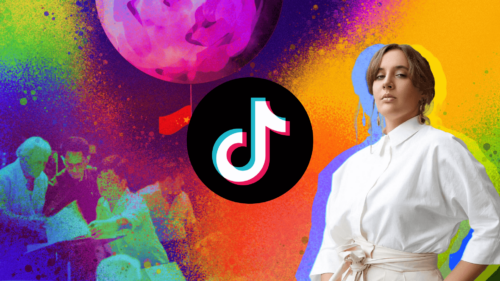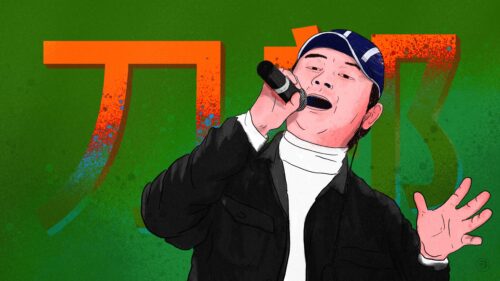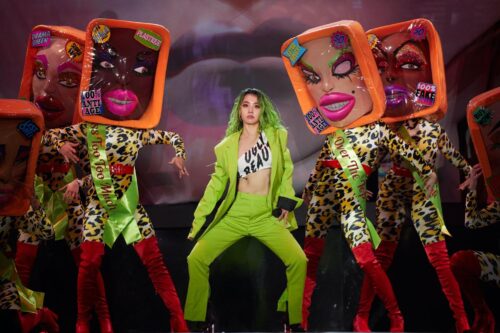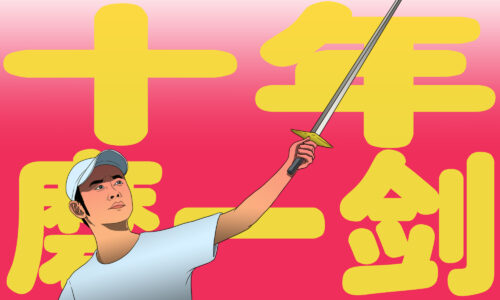The allure (and hazards) of going international: Higher Brothers’ Five Stars, reviewed
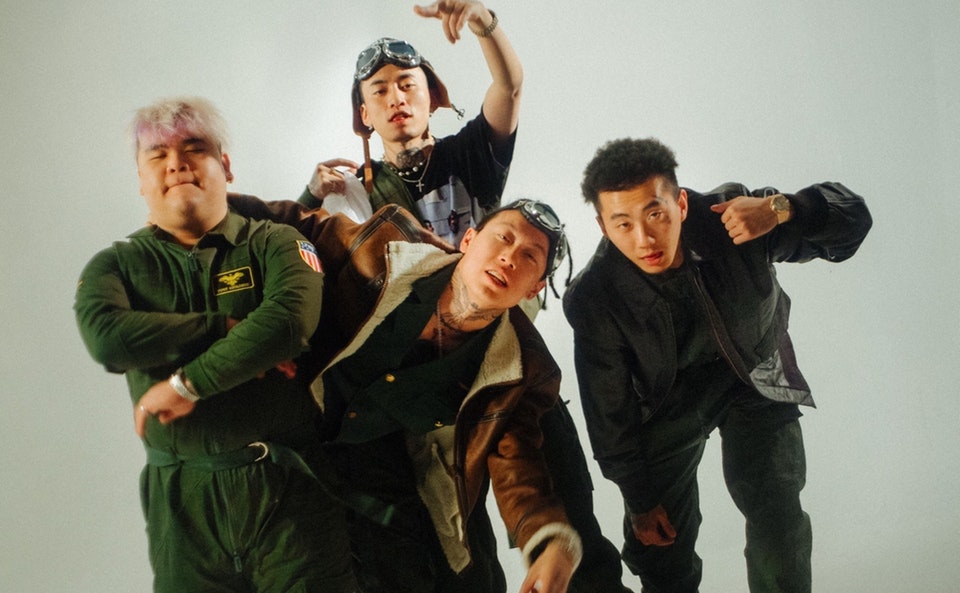
Hot on the heels of sold-out worldwide tours, a compilation album, and even an LA festival with their various 88rising label-mates, Five Stars is an attempt by China’s most international rap group, Higher Brothers, to solidify the hype into a full-length project. In a sense it succeeds, leaning on 88rising connections to pull in almost shockingly big names to produce or rap guest verses, and filling the album more or less with classic rap fare: track after track about their success, their fame, their women, their money, their cars, their incomparability at rapping. The lyrical themes are not new, but the scale at which the album was realized is, and listening through it, one begins to wonder whether they might have added prestige at the cost of musicality and self-expression.
Higher Brothers made a name for themselves as an explicitly Chinese rap group, with their own take on a popular genre, but in an attempt to solidify their appeal in the West, they’ve made musical and lyrical sacrifices on their latest effort: rapping more often in not-very-good English, featuring guests who give inconsistent effort, and seemingly narrowing their sound to be more in line with earlier songs of theirs that garnered rightful praise, the heavier ones with simple, bass-heavy beats or harsher vocals, like “Flo Rida,” “WeChat,” or “Made in China.”
Where their previous full-length project, Black Cab, and their eponymous Higher Brothers mixtape showcased their influences but brought a more eclectic sonic array to the table, this time Higher Brothers seem more often to be imitating their most contemporary American influences. Bohan Phoenix, fellow bilingual rapper and occasional Higher Brothers collaborator, said as much in a recent Radii article, in which he argues that early branding of the group as the “Chinese Migos” served more fundamentally as a PR stunt than as a platform for Higher Brothers to cultivate their craft. These decisions are flexes of power, influence, and internationality, but it has also caused them to let go of some of the playfulness that made them such a fun listen before. Black Cab featured songs using cultural allusions like WeChat, black cabs, Grand Theft Auto, Kendrick Lamar’s “Bitch Don’t Kill My Vibe,” and even 7/11 as clever, extended points of reference. With a couple of exceptions, this kind of mischievousness is gone from the new album.
Five Stars features collaborations with artists whose own discographies are musically diverse, yet many of these featured artists, much-hyped when the track list was released in advance, seem to phone in their verses. Take, for example:
- In “Top,” one of the more boring trap bangers on the album, Soulja Boy’s especially sloppy section literally shows him video-calling into the session, rapping while auto-tuned: “I put that coke on her butt / I pull that lambo you know / Rocking that Balenciaga I’m dripping designer / Look at my diamonds I’m dripping designer.” One wry comment on the music video reads: “I can make out Higher Brothers’ verses better than Soulja’s and I don’t even speak Chinese.”
- Ski Mask the Slump God’s verse on “One Punch Man” reuses several lines of an already-released song of his, playing with the same references to shoemaker Rick Owens and popular animated show Rick and Morty in a video that already includes an interpolation of the One Punch Man anime.
- ScHoolboy Q’s verse on “Won’t Believe” uses the same flow as the second verse of his own single “Numb Numb Juice,” released a month later.
- On the track “Do It Like Me,” ostensibly a song largely flexing skill and wealth, JID bursts into the middle with a verse focusing instead on “looking for peace, looking for love, looking for everything.” Lyrically and stylistically it’s up to JID’s usual high standards, but topically it diverges from the subject matter of the rest of the song in somewhat jarring fashion, leaving a sense that there was little engagement or discussion between the artists on the track.
- Another feature is influential Japanese rapper Kohh, who raps a mind-numbingly repetitive refrain, “We talkin’ bout bitches and money,” which acts as an unfortunate reminder that hip-hop as an American export often normalizes both misogyny and greed.
- Denzel Curry, on the other hand, seems to have given 100 percent on his verse on “One Punch Man,” as did Guapdad 4000, a relative newcomer who rap-sings a verse on the 11th track, the one song entirely in English, “Need Me Now.”
Had the album ended there, I would likely have worse feelings about it overall, but the last three tracks feel like the most cohesive part of the album, perhaps simply because they are collaborations with friends and labelmates they have worked with before. It is these songs on which Higher Brothers sound at their loosest and most comfortable. “Diamond,” produced by Harikiri, with whom the group made the stylish four-song Type-3 EP in 2018 (each track starring one of the members), is a funky update of an old-school boom bap style of beatmaking. “No More,” featuring Indonesian 88rising artist Niki, is a smooth R&B bop on which Higher Brother MaSiWei raps forlornly about a lost love.
The last track, “Zombie,” is produced by label-mate Joji and features one of 88’s younger signees, Rich Brian. It’s actually arguably the heaviest song on the album — chopped up, filtered screams swinging back and forth over muscular drums — but Rich Brian delivers a tight flow, and the undead theme comes across as the Higher Brothers’ last word about how exhausting everything has been, making the aggression feel more purposeful here than on some of the other bass-heavy songs on the album. The verses contain similar braggadocio to many of the other tracks, but the grittily spat chorus may serve to contextualize these things as ultimately hollow: “I woke up like a zombie / I dance like a zombie / Get brain like a zombie / I’m flexing like a zombie / Cold heart cash only / No love no mercy.” Perhaps it can be argued, then, that the stylistic convergence I’m hearing is in part a reaction to how overhyped their whole lives have been over the last two years.
Higher Brothers often speak confidently of their success and wealth, but the more tender and poetic moments are indeed lines about being far from home, late nights in the studio, partying, broken relationships and arguments with loved ones, living in hotel rooms. The first line of the first refrain on “16 Hours,” the opening track, may be about their having “been in the game for a long time,” but the second line ruefully notes, “Sixteen hours, that’s a long flight.” In their recent AMA on the HipHopHeads subreddit, a fan asked how their family felt when the members started rapping, and if that has changed since their success. The short reply was deafening: “They want us to get real jobs, girlfriends, stop flexing.”
To the non-native speaker of Chinese, the Higher Brothers’ verses may come across as uneven. The last album featured the occasional slang term or a chorus in English, but this one leans into the multilingual aspect, with large parts or whole verses rapped in essentially broken English. Admittedly, it’s up for debate whether their mispronunciations or awkward syntax and grammar are actually a problem in an era where mumble rap has left its mark on music history. But nonetheless, it does feel like the English sections are a flex — Higher Brothers telling us that their audience stretches across the Pacific, and that curbing their own cultural expression serves a real purpose.
It’s a pity, because their charm and skill is better displayed in their native language, in which they are far more often fluid, inventive, and poetic, rapping in complex rhythms at lightning speed with a flexibility difficult to attain outside a mother tongue. This is not to say that they are always lyrical geniuses in Chinese — the album has its fair share of boring or eyebrow-raising lines and flows in Chinese as well — but inevitably there’ll be a track with casually profound poetry. Take, for example, the song “Open It Up,” in which Melo evocatively raps, “皎洁的月亮挂在树上是微笑的眼泪/我把星星抵下当做我午夜的点缀” — roughly, “the shining moon hanging in the tree is the tears of a smile / I pluck the stars to use them as my midnight adornment.” Or take “Do It Like Me,” on which Psy.P and Melo almost outshine JID with their complex flows (though those flows do feel imitative of or in tribute to JID rather than their own idea).
In the end, delving deeper into the album left me with a complicated sense of sympathetic understanding mixed with genuine enjoyment. I don’t love it, but I love things about it; I don’t hate it, but I’m disappointed in some of it. It is not a cohesive album, but this too follows the trend of modern American trap albums, which often feel more like playlists than intentional or thematic groupings of songs. I think in the end, this is the album Higher Brothers had to make at some point. Going down their current path, they were inevitably going to have to experiment with sacrificing the fluidity of doing it in their native tongue for the flex of doing it in two (or three, if you count their native Sichuan dialect) languages. The result is a fairly uneven effort, but accounting for the hurdles they had to face linguistically, culturally, and personally, it’s promising — not just for their career, but for the future of U.S.-China cultural exchange.

